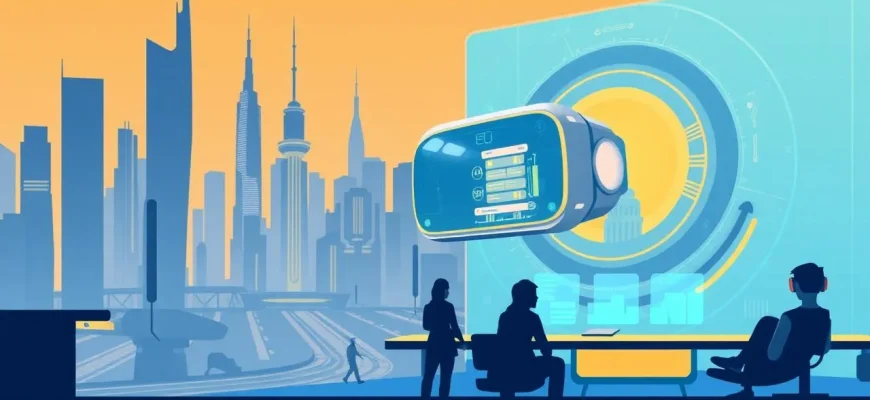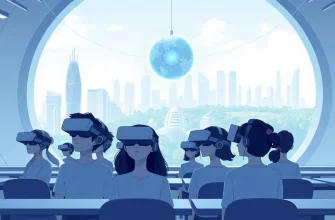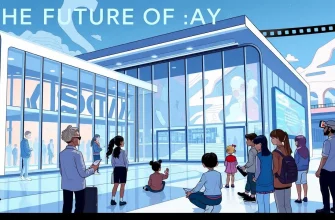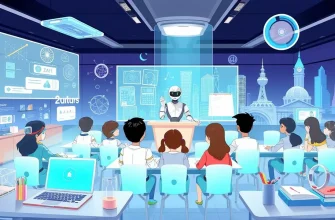In an era where technology is reshaping every aspect of our lives, the concept of virtual learning has become increasingly relevant. These films delve into the possibilities and perils of learning in virtual environments, offering a fascinating look at how education might evolve. From mind-bending simulations to futuristic classrooms, these movies provide a thrilling exploration of what learning could look like in the future.

Tron (1982)
Description: "Tron" is a pioneering film in the realm of virtual reality, where a computer programmer is transported into a digital world. Here, he must learn the rules of this new environment to survive, showcasing an early vision of virtual learning.
Fact: "Tron" was one of the first films to use extensive computer-generated imagery (CGI). The film's visual effects were groundbreaking for its time.
 Watch Now
Watch Now 
Brainstorm (1983)
Description: This film involves a device that can record and play back human experiences, including learning processes, offering a unique perspective on virtual learning.
Fact: The film was directed by Douglas Trumbull, known for his work on visual effects in films like "2001: A Space Odyssey." It was one of the first films to use stereoscopic 3D.
 Watch Now
Watch Now 
The Lawnmower Man (1992)
Description: "The Lawnmower Man" explores the idea of virtual reality as a tool for enhancing human intelligence and learning, albeit with dangerous consequences.
Fact: The film was loosely based on a short story by Stephen King, though King later disowned the film due to its divergence from his original story.
 Watch Now
Watch Now 
Virtuosity (1995)
Description: In "Virtuosity," a virtual reality simulation is used to train police officers, showcasing how virtual environments can be used for practical learning and skill development.
Fact: The film features Denzel Washington in one of his early sci-fi roles. The character of SID
 Watch Now
Watch Now 
The Matrix (1999)
Description: While not explicitly about virtual learning, "The Matrix" explores a world where humans are plugged into a simulated reality, learning and experiencing life through a digital interface. It's a mind-bending journey into the potential of virtual environments for education.
Fact: The film's concept of "jacking in" to a virtual world was inspired by cyberpunk literature. The Wachowskis wrote the script with a focus on philosophical questions about reality and perception.
 Watch Now
Watch Now 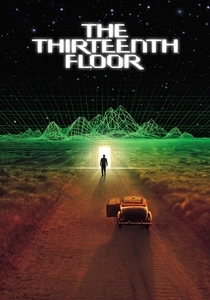
The Thirteenth Floor (1999)
Description: This film explores a virtual reality simulation where characters can learn and experience life in different eras. It raises questions about the nature of reality and the potential of virtual learning environments.
Fact: The film is loosely based on the novel "Simulacron-3" by Daniel F. Galouye. It was released the same year as "The Matrix," leading to comparisons between the two.
 Watch Now
Watch Now 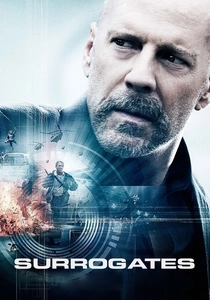
Surrogates (2009)
Description: In "Surrogates," humans live through robotic avatars, learning and experiencing life remotely. This film explores the implications of such a system on education and personal development.
Fact: The film is based on the comic book "The Surrogates" by Robert Venditti and Brett Weldele. Bruce Willis was initially hesitant to star in the film due to its sci-fi nature.
 Watch Now
Watch Now 
Gamer (2009)
Description: In "Gamer," players control real people in a virtual game environment, showcasing a dystopian view of virtual learning where control and manipulation are key themes.
Fact: The film's premise was inspired by the video game "Manhunt." It was one of the first films to explore the concept of "human gaming."
 Watch Now
Watch Now 
Strange Days (1995)
Description: While primarily a thriller, "Strange Days" features a technology that allows users to record and experience others' memories, which can be seen as a form of virtual learning or experience sharing.
Fact: The film was directed by Kathryn Bigelow, who later became the first woman to win an Academy Award for Best Director for "The Hurt Locker."
 30 Days Free
30 Days Free 
eXistenZ (1999)
Description: David Cronenberg's "eXistenZ" delves into a virtual reality game where players can learn and experience life in an entirely different way. The film blurs the lines between reality and virtuality, making it a unique entry in the virtual learning genre.
Fact: The film's title is a play on the word "existence," reflecting the theme of blurring the lines between reality and virtual reality. Cronenberg wrote the script in just three weeks.
 30 Days Free
30 Days Free 
